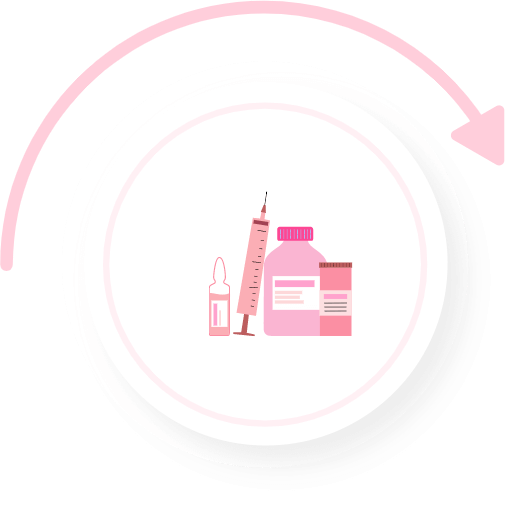Intracytoplasmic Sperm Injection (ICSI) is a revolutionary fertility treatment offering renewed hope for couples struggling with infertility. This article aims to provide a thorough understanding of ICSI, covering its purpose, procedure, eligibility criteria, success rates, considerations, and influencing factors. By exploring this informative content, individuals can gain valuable insights and make informed decisions as they navigate the journey toward parenthood.
ICSI treatment stands as an incredible breakthrough in fertility treatment. It is a specialized procedure where a single sperm is directly injected into an egg to aid fertilization. This precise technique is commonly incorporated into in vitro fertilization (IVF) cycles and proves especially helpful for couples dealing with male factor infertility or other intricate fertility challenges.
ICSI is a popular and effective treatment for men who have trouble having babies. It’s suggested when:

The woman receives stimulation injections from the second day of her menstrual cycle to boost egg production. Doctors stimulate the ovaries with stimulating injections for about 8 to 12 days. This procedure will increase the chances for successful result.

The doctor takes out eggs from the woman's ovaries. This procedure happens under anaesthesia or sedation, where mature eggs are collected via a minimally invasive procedure. This procedure occurs after completion (14-15 days) of stimulation.

An expert injects the best sperm into each mature egg using a microscope.

After fertilization, the embryos are watched for 3 to 5 days to aim for good-quality ones.

The chosen embryos are placed into the woman’s uterus in a quick 5-minute procedure.

In embryo transfer, selected one or two high-quality embryos gets transfer into the woman's uterus. This is a quick and anaesthesia-free procedure which takes around 5-10 minutes.

A test is done two weeks after placing the embryos to see if the woman is pregnant.
Before starting ICSI treatment, the fertility team gathers eggs and sperm. To retrieve eggs, medications stimulate the ovaries, and a needle is guided by Trans-vaginal ultrasound (TVS) to collect mature eggs, with mild anesthesia for patient comfort. The collected sperm is analyzed for mobility, volume, and quality. Sometimes, procedures like microscopic testicular sperm extraction or electroejaculation may be needed. The sperm can be frozen for later use in IVF.

The likelihood of a successful outcome in IVF can be based on several factors, including the woman’s age, the underlying cause of infertility, the quality of both eggs and sperm, and the expertise of the fertility clinic. Generally, success rates tend to decline as a woman’s age advances. With the introduction of advanced IVF techniques, the chances of achieving pregnancy per IVF cycle and embryo transfer are notably higher, reaching approximately 60% for women below 35 years of age.
